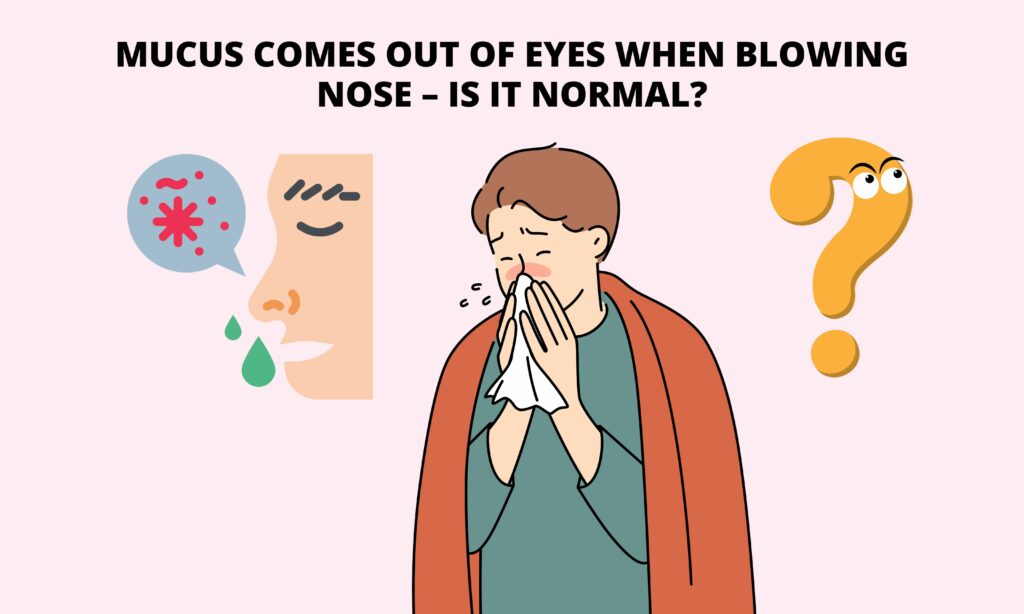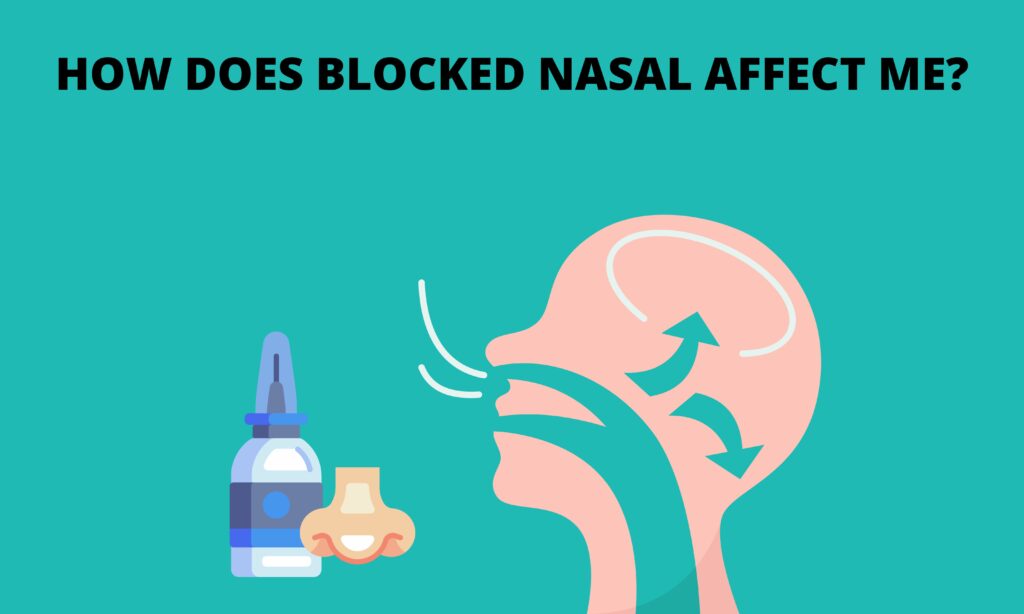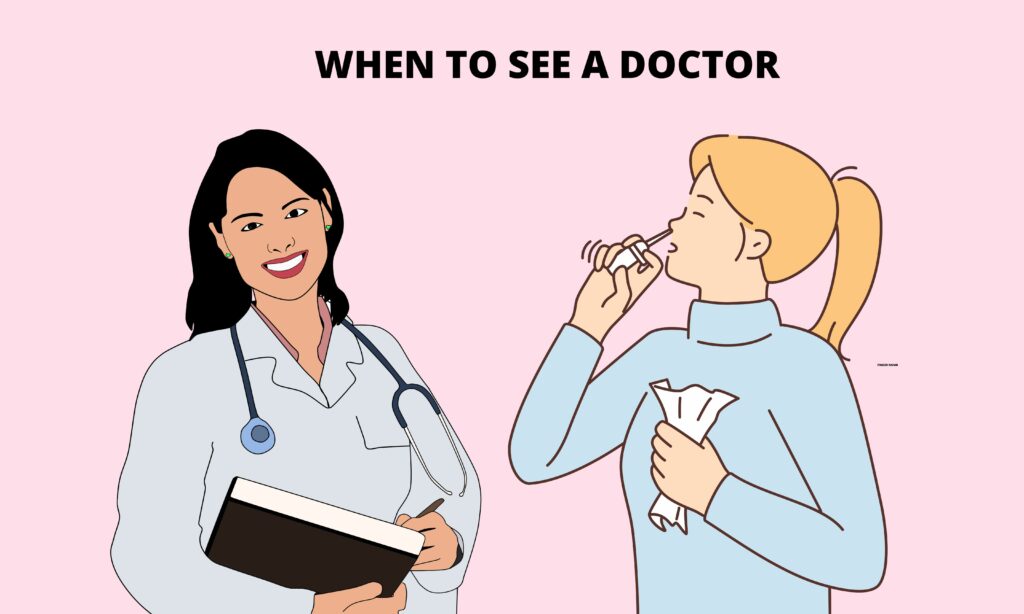
Mucus coming out of the eyes when blowing the nose is a relatively common occurrence. While it may seem concerning, it is usually not a cause for alarm. In this article, we will discuss the causes, symptoms, and treatments for mucus coming out of the eyes when blowing the nose.
Causes:
- The most common cause of mucus coming out of the eyes when blowing the nose is a condition called allergic rhinitis, commonly known as hay fever. Allergic rhinitis occurs when the immune system overreacts to an allergen such as pollen, dust, or pet dander. This can cause inflammation of the nasal passages, leading to excessive mucus production, and congestion. The excess mucus can then drain into the eyes through the tear ducts, causing irritation and watering of the eyes.
- Another cause of mucus coming out of the eyes when blowing the nose is a condition called sinusitis. Sinusitis occurs when the sinuses become inflamed due to an infection or allergy. This can cause blockage of the sinus passages, leading to pressure and pain in the face, and excessive mucus production. The excess mucus can then drain into the eyes through the tear ducts, causing irritation and watering of the eyes.
Symptoms:
The symptoms of mucus coming out of the eyes when blowing the nose may include watery eyes, irritation, redness, and itching of the eyes. These symptoms may be accompanied by other symptoms such as nasal congestion, runny nose, and pressure in the face.
Treatment:
The treatment for mucus coming out of the eyes when blowing the nose depends on the underlying cause. If the cause is allergic rhinitis, treatment may involve avoiding allergens, taking antihistamines, or using nasal sprays. If the cause is sinusitis, treatment may involve antibiotics, nasal decongestants, or nasal irrigation.
In some cases, mucus coming out of the eyes when blowing the nose may be a sign of a more serious condition such as a blocked tear duct or an eye infection. If you experience persistent symptoms or if your symptoms worsen, it is important to seek medical attention.
Conclusion:
Mucus coming out of the eyes when blowing the nose is usually not a cause for alarm and is often a symptom of allergic rhinitis or sinusitis. However, if you experience persistent symptoms or if your symptoms worsen, it is important to seek medical attention. By identifying and treating the underlying cause, you can effectively manage this condition and prevent further complications.
Blocked nasal passageway
Blocked nasal passageway is a common problem that can cause discomfort and difficulty breathing. This condition can be caused by various factors, including excessive mucus production, inflammation, and nasal polyps. In this article, we will discuss the causes, symptoms, and treatments for a blocked nasal passageway.
Causes:
- Excessive mucus production is a common cause of a blocked nasal passageway. When the body produces more mucus than usual, it can lead to congestion and blockage in the nasal passages. This can be caused by allergies, sinusitis, or a cold.
- Inflammation is another common cause of a blocked nasal passageway. Inflammation in the nasal passages can occur due to allergies, infections, or irritants such as cigarette smoke or pollution.
Nasal polyps are growths that can develop in the lining of the nasal passages. These growths can obstruct the nasal passageway, causing difficulty breathing.
Symptoms:
The symptoms of a blocked nasal passageway may include difficulty breathing through the nose, a stuffy or congested nose, facial pain or pressure, headache, and mucus coming out of the eyes when blowing the nose. In some cases, a blocked nasal passageway may also cause snoring, sleep apnea, or a decreased sense of smell.
Treatment:
The treatment for a blocked nasal passageway depends on the underlying cause. If the cause is excessive mucus production, treatment may involve using saline nasal sprays or rinses, decongestants, or antihistamines.
If the cause is inflammation, treatment may involve using nasal corticosteroids or antihistamines to reduce inflammation. In some cases, allergy shots or immunotherapy may also be recommended to reduce the body’s response to allergens.
In severe cases, surgery may be required to remove nasal polyps or correct a deviated septum. This can help to open up the nasal passageway and improve breathing.
Conclusion:
A blocked nasal passageway can be a frustrating and uncomfortable condition. However, with proper treatment, it can be effectively managed. By identifying the underlying cause of the blockage and working with a healthcare professional, you can find relief from the symptoms of a blocked nasal passageway and improve your quality of life. If you experience persistent or severe symptoms, it is important to seek medical attention.
How does blocked nasal affect me?

Blocked nasal passages can have a significant impact on a person’s quality of life. This condition can cause discomfort, difficulty breathing, and can even lead to complications if left untreated. In this article, we will discuss how blocked nasal passages can affect a person and the potential consequences of ignoring the symptoms.
Impact on Breathing:
Blocked nasal passages can make it difficult to breathe through the nose, forcing a person to breathe through their mouth instead. This can lead to dry mouth, snoring, and even sleep apnea. In addition, mouth breathing can increase the risk of dental problems such as cavities, gum disease, and bad breath.
Impact on Physical Health:
Blocked nasal passages can also have an impact on a person’s physical health. When the nasal passages are blocked, mucus can accumulate, leading to sinus infections, ear infections, and even pneumonia. The accumulation of mucus can also cause headaches, facial pain, and pressure.
Impact on Mental Health:
Blocked nasal passages can also have an impact on a person’s mental health. The constant discomfort and difficulty breathing can lead to irritability, fatigue, and even depression. The lack of quality sleep due to mouth breathing and snoring can also lead to daytime sleepiness and decreased productivity.
Complications of Ignoring Symptoms:
Ignoring the symptoms of blocked nasal passages can lead to complications. Chronic nasal congestion can lead to the development of nasal polyps, which can obstruct the nasal passages and make breathing even more difficult. Chronic sinus infections can also lead to the development of chronic sinusitis, which can cause permanent damage to the sinus tissues.
Treatment:
The treatment for blocked nasal passages depends on the underlying cause. If the cause is allergies, antihistamines, decongestants, and nasal corticosteroids can help to reduce inflammation and congestion. Nasal saline rinses can also help to flush out excess mucus.
If the cause is a physical abnormality such as nasal polyps or a deviated septum, surgery may be required to correct the problem.
Conclusion:
Blocked nasal passages can have a significant impact on a person’s physical and mental health. It is important to seek treatment if you experience persistent symptoms such as difficulty breathing, mucus coming out of the eyes when blowing the nose, or chronic sinus infections. By identifying the underlying cause of the blockage and working with a healthcare professional, you can find relief from the symptoms of blocked nasal passages and improve your quality of life.
Nasolacrimal duct reflux
Nasolacrimal duct reflux is a condition that occurs when mucus from the nose and sinuses flows back into the tear ducts, leading to the discharge of mucus from the eyes when blowing the nose. In this article, we will discuss the causes, symptoms, and treatment options for nasolacrimal duct reflux.
Causes:
Nasolacrimal duct reflux can be caused by various factors, including allergies, sinus infections, and inflammation. When the nose and sinuses become inflamed or congested, mucus can flow back into the tear ducts, leading to the discharge of mucus from the eyes.
Symptoms:
The main symptom of nasolacrimal duct reflux is the discharge of mucus from the eyes when blowing the nose. In addition, this condition may also cause other symptoms such as watery eyes, eye redness, eye irritation, and blurred vision.
Diagnosis:
The diagnosis of nasolacrimal duct reflux can be made by an ophthalmologist or an otolaryngologist. These specialists can perform a comprehensive eye exam and may also use imaging tests such as an MRI or CT scan to evaluate the tear ducts and sinuses.
Treatment:
The treatment for nasolacrimal duct reflux depends on the underlying cause. If the cause is allergies, antihistamines and decongestants can help to reduce inflammation and congestion. Nasal saline rinses can also help to flush out excess mucus and improve tear duct function.
If the cause is a sinus infection, antibiotics may be prescribed to clear the infection. In some cases, surgery may be required to correct structural abnormalities in the nose or tear ducts.
Prevention:
To prevent nasolacrimal duct reflux, it is important to manage any underlying conditions that can cause inflammation and congestion, such as allergies or sinusitis. This can be done by avoiding allergens and using medications as prescribed by a healthcare professional.
It is also important to maintain good hygiene practices, such as washing hands regularly and avoiding touching the eyes or nose. This can help to prevent the spread of infections and reduce the risk of developing nasolacrimal duct reflux.
Conclusion:
Nasolacrimal duct reflux can be a frustrating and uncomfortable condition. However, with proper diagnosis and treatment, it can be effectively managed. By identifying the underlying cause of the condition and working with a healthcare professional, you can find relief from the symptoms of nasolacrimal duct reflux and improve your quality of life. If you experience persistent or severe symptoms, it is important to seek medical attention.
When to see a doctor

Experiencing mucus coming out of the eye when blowing the nose can be uncomfortable and concerning. In some cases, it may be a sign of a more serious underlying condition. This article will discuss when it is necessary to see a doctor if you are experiencing mucus coming out of your eye when blowing your nose.
Persistent or Severe Symptoms:
If you are experiencing persistent or severe symptoms such as frequent discharge of mucus from the eyes, eye redness, eye irritation, and blurred vision, it is important to seek medical attention. These symptoms may indicate a more serious underlying condition that requires prompt treatment.
Underlying Conditions:
Mucus coming out of the eye when blowing the nose can be caused by a variety of underlying conditions such as allergies, sinusitis, or nasolacrimal duct reflux. If you have a history of these conditions, or if you are experiencing symptoms of them, it is important to see a doctor. An ophthalmologist or an otolaryngologist can evaluate your symptoms and recommend appropriate treatment.
Changes in Vision:
If you are experiencing changes in vision such as blurriness or double vision, it is important to seek medical attention immediately. These symptoms may indicate a more serious underlying condition such as optic neuritis, which is inflammation of the optic nerve.
Infections:
If you have symptoms of an infection such as fever, body aches, and fatigue in addition to mucus coming out of the eye when blowing the nose, it is important to see a doctor. You may have a sinus infection or another type of infection that requires prompt treatment with antibiotics.
Conclusion:
Mucus coming out of the eye when blowing the nose can be a sign of a more serious underlying condition. If you are experiencing persistent or severe symptoms, changes in vision, or symptoms of infection, it is important to seek medical attention. An ophthalmologist or an otolaryngologist can evaluate your symptoms and recommend appropriate treatment. By seeking medical attention promptly, you can receive the necessary treatment and improve your quality of life.
Frequently Asked Questions (FAQs)
Mucus coming out of the eye when blowing the nose can be a concerning and uncomfortable symptom. In this article, we have compiled some frequently asked questions about this topic to provide you with more information and clarity.
Q: Is it normal for mucus to come out of the eye when blowing the nose?
A: No, it is not normal for mucus to come out of the eye when blowing the nose. This can be a sign of an underlying condition such as nasolacrimal duct reflux or an infection.
Q: What can cause mucus to come out of the eye when blowing the nose?
A: Mucus coming out of the eye when blowing the nose can be caused by several underlying conditions such as allergies, sinusitis, nasolacrimal duct reflux, or an infection.
Q: Can allergies cause mucus to come out of the eye when blowing the nose?
A: Yes, allergies can cause mucus to come out of the eye when blowing the nose. This is due to the excess mucus production in the nasal and sinus passages that can lead to the mucus flowing back into the tear ducts and causing discharge from the eyes.
Q: Is it necessary to see a doctor if mucus comes out of the eye when blowing the nose?
A: It depends on the severity and persistence of the symptoms. If you are experiencing persistent or severe symptoms such as frequent discharge of mucus from the eyes, eye redness, eye irritation, and blurred vision, it is important to seek medical attention.
Q: How can nasolacrimal duct reflux be treated?
A: Treatment for nasolacrimal duct reflux may include topical or oral antibiotics, antihistamines, nasal saline irrigation, and surgical intervention in severe cases.
Q: Can sinusitis cause mucus to come out of the eye when blowing the nose?
A: Yes, sinusitis can cause mucus to come out of the eye when blowing the nose. The inflammation of the sinuses can lead to the excess production of mucus, which can then flow back into the tear ducts and cause discharge from the eyes.
In conclusion, mucus coming out of the eye when blowing the nose can be a sign of an underlying condition that requires medical attention. If you are experiencing persistent or severe symptoms, it is important to see a doctor. Understanding the causes and treatments of this symptom can help you make informed decisions about your health.
To summarize
Mucus coming out of the eye when blowing the nose can be a concerning symptom that may indicate an underlying condition. In this article, we have explored the causes, symptoms, and treatment options for this condition. Here is a summary of the key points:
Causes:
- Mucus coming out of the eye when blowing the nose can be caused by several underlying conditions such as allergies, sinusitis, nasolacrimal duct reflux, or an infection.
- Allergies and sinusitis can cause excess mucus production, which can flow back into the tear ducts and cause discharge from the eyes.
- Nasolacrimal duct reflux is a condition where the tears and mucus from the eye flow back into the nose and throat, leading to symptoms such as mucus coming out of the eye when blowing the nose.
Symptoms:
- The main symptom of mucus coming out of the eye when blowing the nose is discharge from the eyes.
- Other symptoms may include eye redness, eye irritation, blurred vision, and nasal congestion.
Treatment:
- Treatment for mucus coming out of the eye when blowing the nose depends on the underlying cause of the condition.
- Allergy and sinusitis-related symptoms can be managed with antihistamines, decongestants, nasal saline irrigation, and other medications.
- Nasolacrimal duct reflux can be treated with topical or oral antibiotics, antihistamines, and in severe cases, surgery.
When to see a doctor:
- It is important to seek medical attention if you are experiencing persistent or severe symptoms such as frequent discharge of mucus from the eyes, eye redness, eye irritation, and blurred vision.
- If you have a history of allergies, sinusitis, or other respiratory conditions, it is recommended to see a doctor if you develop symptoms of mucus coming out of the eye when blowing the nose.
In conclusion, mucus coming out of the eye when blowing the nose can be a sign of an underlying condition that requires medical attention. It is important to understand the causes and treatment options for this symptom in order to manage it effectively. If you are experiencing persistent or severe symptoms, it is best to seek medical attention to determine the underlying cause and appropriate treatment.